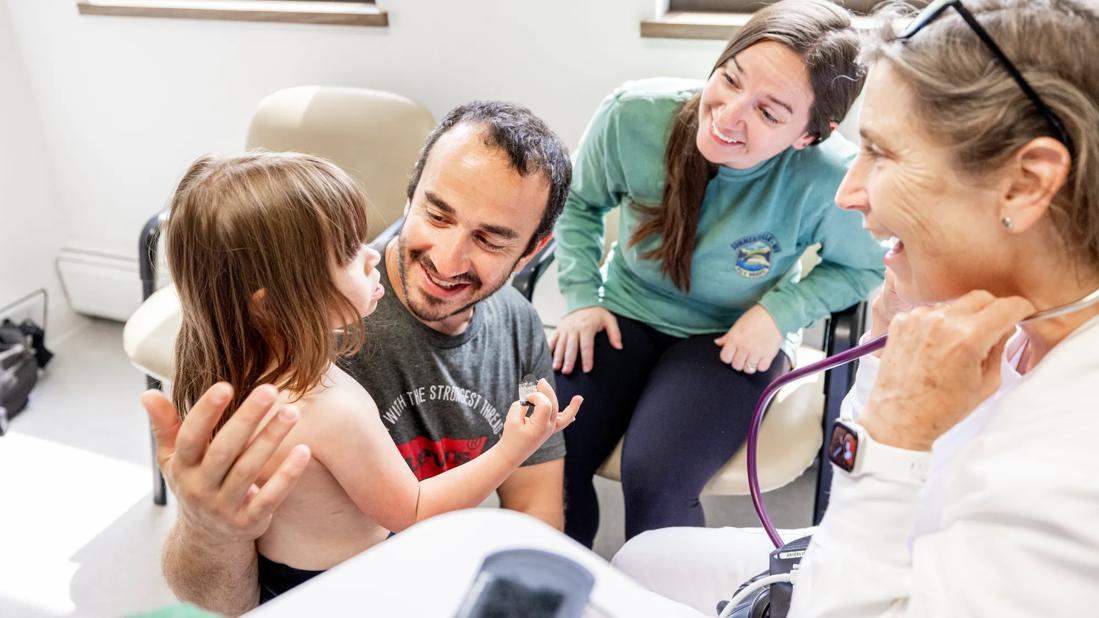Tap into their knowledge for the optimal care plan

Involving family in a patient’s plan of care is often beneficial, but this holds particularly true when those patients are children. “Parents have this wealth of information about their child that only they know,” says Rachel Thurman, BSN, RN, CPN, a pediatric nurse at Cleveland Clinic’s Solon Family Health Center. “They know little details about the child that you won’t find in the medical records, but can help us care for the child.”
Advertisement
Cleveland Clinic is a non-profit academic medical center. Advertising on our site helps support our mission. We do not endorse non-Cleveland Clinic products or services. Policy
A nurse for 17 years, Thurman has worked in both inpatient and ambulatory settings. She recently shared her thoughts on the importance of including parents in patient care in the Society of Pediatric Nurses’ members-only eNews.
Thurman has plenty of examples showing why it’s important to include parents as collaborators in patient care, just as you would include any member of the caregiving team. In February, when she was taking triage calls at the Solon Family Health Center, Thurman got a call from a mom who had just picked up her four-month-old from daycare. The mom said her son was crying – not his normal cry, but his ear infection cry. The boy didn’t have a fever or any other classic symptoms of ear infection. But Thurman listened to the mom and made an appointment for her son that evening.
“If I was going by the book, we would’ve waited a little longer to see him,” says Thurman. Tests revealed the patient did, indeed, have an ear infection. “It’s really important to listen to parents,” she says. “I wouldn’t know the baby’s hungry cry from his ear infection cry, but mom sure did.” The boy started treatment that night, rather than suffering through the classic medical symptoms before receiving medication.
Thurman says there are three keys to ensuring that parents are actively included in the decision-making process, not just informed about the plan of care once it’s been determined: “It’s about being a good listener, asking questions and building relationships, which are things almost every great nurse that I know does well,” she says.
Advertisement
There are many areas where parents can offer invaluable insight that might benefit patient care, including the following:
“It’s really important that we listen to parents,” says Thurman. “Ask the questions to get the next-level understanding of who the child is, not just in this moment medically but as a whole person.”
Advertisement
Advertisement

Planning continues with critical, patient-focused input from nursing teams

Strengthening care through targeted resources and frontline voices

Embracing generational differences to create strong nursing teams

CRNA careers offer challenge and reward

An unexpected health scare provides a potent reminder of what patients need most from their caregivers

Cleveland Clinic Abu Dhabi initiative reduces ICU admissions and strengthens caregiver collaboration

Veteran nurse blends compassion, cutting-edge transplant training and military tradition to elevate patient care

Embrace coaching and other tips to be a stronger leader